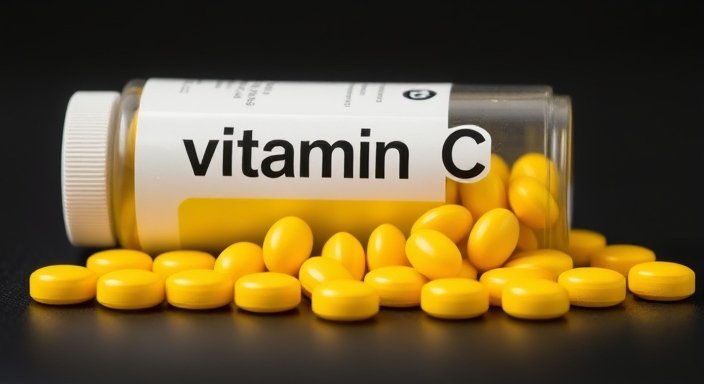Vitamin C, also known as ascorbic acid, is one of the most vital nutrients for our health. Whether it’s boosting your immune system, protecting your skin, or enhancing your body’s ability to absorb nutrients, Vitamin C plays a pivotal role. In this article, we explore five key facts about Vitamin C, backed by scientific research, to help you understand why it deserves a place in your daily diet.
1. Immune System Booster
Vitamin C is best known for its role in supporting the immune system. It helps stimulate the production of white blood cells, which are essential for fighting off infections and protecting the body from harmful pathogens. Additionally, Vitamin C acts as an antioxidant, reducing inflammation and enhancing the immune system’s efficiency.
Key Fact: Studies have shown that regular Vitamin C intake can reduce the duration and severity of colds in some individuals.
2. A Potent Antioxidant
Free radicals are unstable molecules that can damage cells and contribute to aging and chronic diseases. Vitamin C neutralizes these free radicals, protecting your body from oxidative stress. Its antioxidant properties also support heart health by reducing inflammation and improving blood vessel function.
Key Fact: Antioxidants like Vitamin C are crucial for preventing diseases such as cancer and cardiovascular conditions.
3. Essential for Collagen Production
Collagen is the most abundant protein in the human body, providing structure to the skin, tendons, ligaments, and blood vessels. Vitamin C is a critical component in collagen synthesis, which is why it’s often included in skincare products and supplements.
Key Fact: A lack of Vitamin C can lead to weaker collagen structures, resulting in slower wound healing and skin aging.
4. Enhances Iron Absorption
Vitamin C improves the absorption of iron from plant-based foods, making it a vital nutrient for vegetarians and those at risk of iron deficiency. By converting iron into a more absorbable form, Vitamin C helps prevent anemia and supports healthy oxygen transport in the blood.
Key Fact: Pairing iron-rich foods like spinach with Vitamin C-rich foods like citrus fruits can significantly boost iron absorption.
5. Found in Fresh Fruits and Vegetables
The best sources of Vitamin C are fresh fruits and vegetables. While oranges are the most well-known, other excellent sources include strawberries, kiwi, red bell peppers, and broccoli. Regularly including these foods in your diet ensures you get enough of this vital nutrient.
Key Fact: Red bell peppers contain more Vitamin C per serving than oranges, making them a powerhouse option for your daily intake.
How Much Vitamin C Do You Need?
The recommended daily intake (RDI) for Vitamin C varies:
- Men: 90 mg/day
- Women: 75 mg/day
- Smokers: Additional 35 mg/day
Excess Vitamin C is water-soluble, meaning your body excretes what it doesn’t use. However, extremely high doses may cause side effects like diarrhea and stomach cramps.
Conclusion
Vitamin C is a versatile and indispensable nutrient that supports your overall health. From enhancing immunity to promoting healthy skin and aiding in nutrient absorption, its benefits are far-reaching. Incorporate a variety of Vitamin C-rich foods into your diet to ensure you’re reaping all the rewards this nutrient has to offer.
Sources
- Harvard T.H. Chan School of Public Health – Vitamin C: An Essential Nutrient. https://hsph.harvard.edu/department/nutrition/
- National Institutes of Health – Vitamin C: Fact Sheet for Consumers. https://ods.od.nih.gov/factsheets/VitaminC-Consumer/
- Linus Pauling Institute – Vitamin C: Micronutrient Information. https://lpi.oregonstate.edu/
- Cleveland Clinic – What You Should Know About Vitamin C. https://my.clevelandclinic.org/
- USDA Food Data Central – https://fdc.nal.usda.gov/






